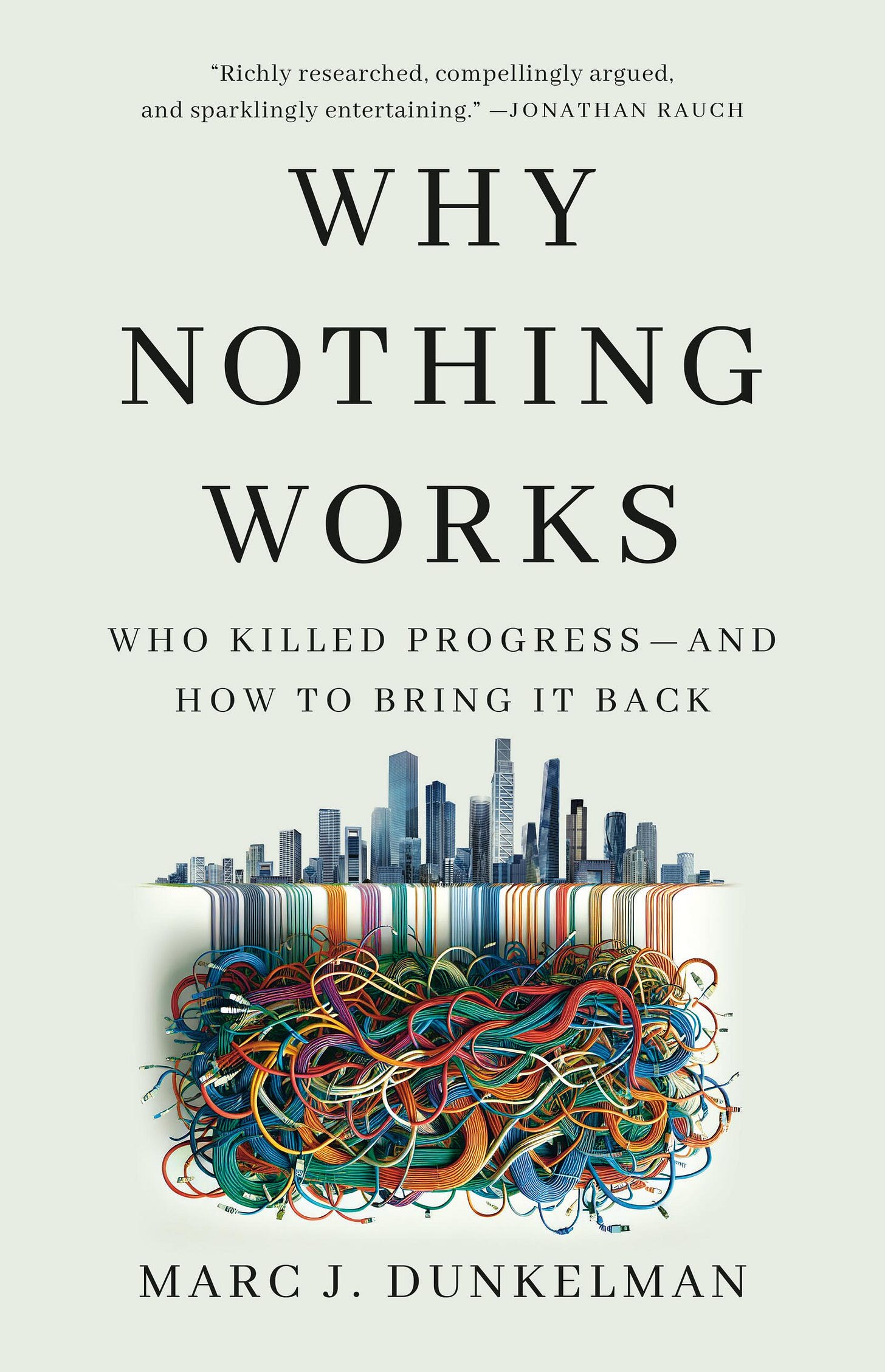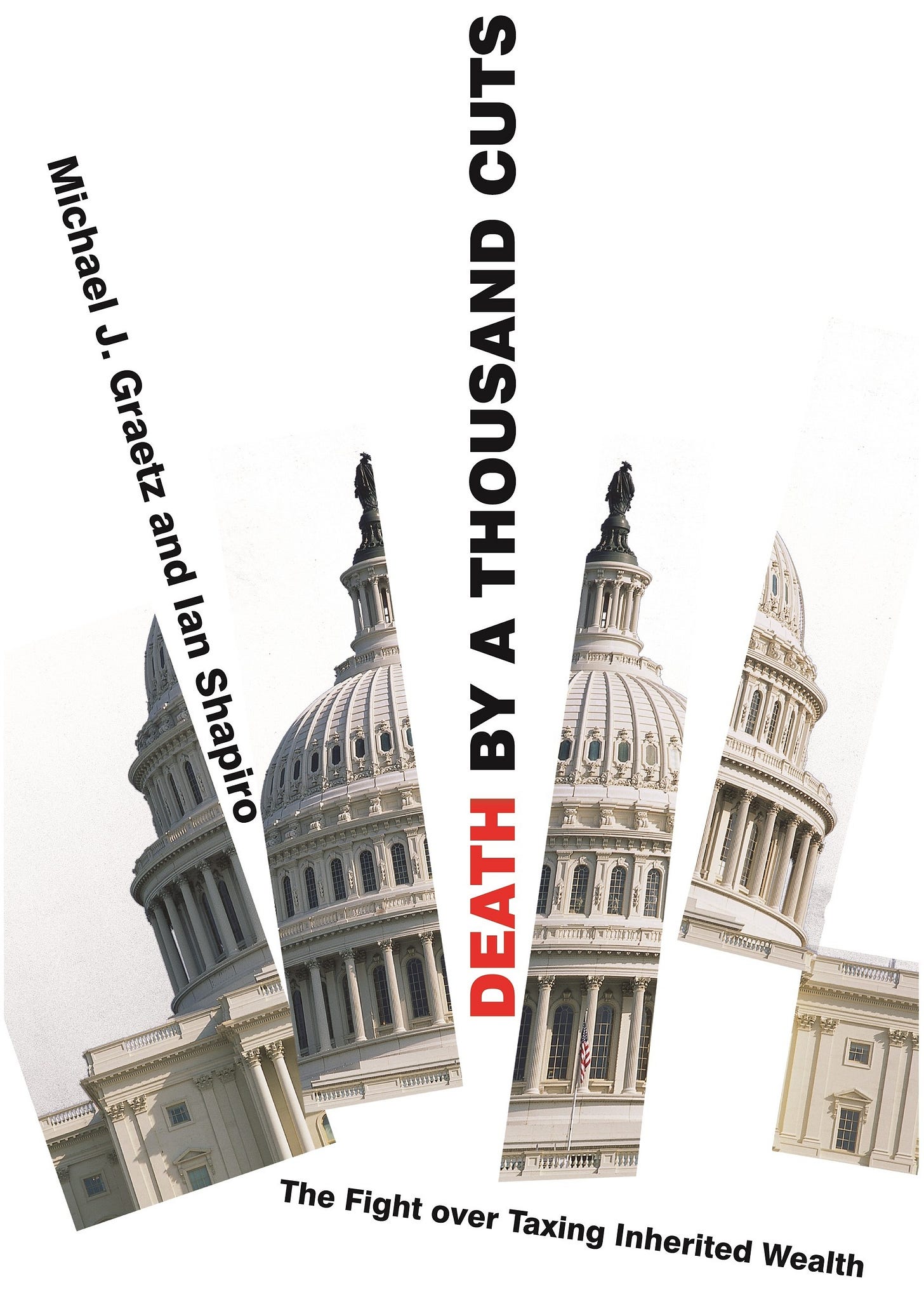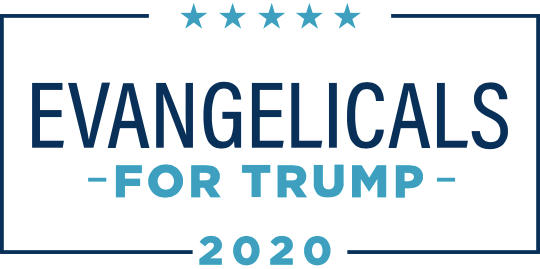(∃)merican (∀)ligarchs
Zephyr Teachout claims that "abundance" lacks a theory of power. But her theory may have an even graver problem: quantifier scope ambiguity.
One of the more interesting debates in American politics this year has been around a theory of power.
The brouhaha began with
and ’s Abundance, which struck a nerve with the “anti-monopoly left.” The book never advocates for monopolies, but nor do the authors look into the camera and say “I am a trust buster now.”This was enough to draw the ire of Zephyr Teachout:
I think that we should be focusing Democratic politics, and politics in general, on the problem of concentrated power and the way in which concentrated power is making it impossible to do things and also really crushing our democracy.
We really do have an oligarchy problem. And the antimonopoly tool kit is a response to that.
There’s something to this. A lot of good things really are hard to do in America: building housing, delivering clean energy, developing new technologies. And part of why it’s all so hard is that powerful interests are blocking progress. The abundists claim that much of the blocking has been self-inflicted by progressives, who have put in place all sorts of regulations and procedures that make it pricey and painful to build stuff. This is how we end up with San Francisco costing out a single badly needed public toilet at $1.7 million—and even after receiving a free toilet from a company in Nevada (manfactured at 1/10th the price), it still took the city a year to slog through the logistics of installing it.

Teachout’s concern, which has a ring of truth, is that we don’t want to lose sight of the fundamental influence of powerful interests.1 And out of this axiom appears to emerge a theorem. If we focus our analysis only on bottlenecks in the process, we shall lose sight of the deeper causes of dysfunction. The system is not broken because of a well-intentioned technocratic mistake in execution—the system is broken because that’s how the oligarchy wants it. Unless you take them on, any reforms you implement will be superficial and easily undone, or even co-opted, by the powers that be.
And yet, while I admire the quest for deeper causes, I also find Teachout’s approach to a “theory of power” a bit unsatisfying. At first I couldn’t put my finger on why. But then it struck me that her claims about oligarchy are exploiting a subtle ambiguity. When we say “social progress is being blocked by a small group of powerful interests,” we could mean either of two things:
For every intractable social problem, there is some powerful interest group blocking progress on that problem.
There is some powerful interest group blocking progress on every intractable social problem.
The first interpretation, perhaps with qualifications, is plausible. But it is also boring. Klein himself would be the first to admit that powerful groups are capable of promoting their private interests at the public expense. He just denies that one single group does all the blocking:
I actually think power is incredibly important here. But power is very much related to process. And I think we all would probably agree the way we do regulations now has created this feasting capacity for special interests.
But one of the reasons I’m very focused on process vetocracy is because it creates entry points for all kinds of incumbent players. Sometimes that’s corporations, sometimes it’s unions, sometimes it’s local homeowners. Sometimes it’s people I am allied with, sometimes people I’m not allied with.
But what it isn’t is visible. And the more you have process that is complex and delay-oriented, but also in the shadows — you have to know the planning meeting is happening, you have to know how the notice and comment period works — the more I think what you have done is open your system to all kinds of capture.
Similarly, Matt Yglesias argues that the process of “localized decision-making” allows NIMBYs and to block construction in their neighborhoods, even when some projects would produce bigger “widely dispersed” benefits for those living in other areas—lower housing prices, cheaper energy, and so on. If the first interpretation of Teachout’s claim is so weak that even Klein and Yglesias agree with it, it can’t be an objection to abundance.
The term “oligarchy,” however, nudges the mind towards the second interpretation, which is stronger rhetorically as well as logically. We can’t rule out this stronger claim a priori. Nothing in the fabric of the universe protects the many against the possibility of omnidimensional domination by the few. There always could be a powerful cabal running everything—but there could also be multiple powerful groups, each with its own fiefdom. Why assume they’re all connected?
Whichever way you interpret Teachout’s thesis, it’s not an effective objection. Either (1) it is true but boring, or (2) it is interesting but false.
(By the way, interpretations (1) and (2) are a textbook case of “quantifier scope ambiguity,” one of the most practical things you can learn from studying first-order logic. See the footnotes for details.)2
In what follows, I will try to raise some doubts about the “theory” that we are all being ruled by a static clique of oligarchs, i.e. the second interpretation of Teachout’s claim. As you read on, you may wonder to yourself, “But isn’t this obvious? Doesn’t everybody believe in a plurality of powerful factions?” I certainly find this idea very plausible. But remember: once you’ve retreated away from the stronger “oligarchy” claim (1) and towards the weaker interpretation (2), it’s no longer a threat to the abundists. The objection that they “lack a theory of power” vanishes into thin air.3
Now then, let’s see what to make of the stronger interpretation of the oligarchy hypothesis.
Structural challenges for a unitary oligarchy
In a gargantuan and highly specialized society like the United States, where the GDP is $28 trillion, the federal government employs 3 million people, and the political system teems with veto points (bicameral legislature, presidential veto, judicial review…), it would not be easy for a single cabal to run the entire show unchallenged. I’m not saying it’s impossible—only that there are serious collective action problems that any aspiring omni-oligarchs would have to overcome.
As obvious as it should be, it bears emphasizing that there are nontrivial conflicts of interests and ideology even among the most powerful people in American society. Donald Trump loves shooting off “beautiful” tariffs from the hip; the CEOs of BlackRock and Chase Bank would rather he stopped. Miriam Adelson and Elon Musk spent hundreds of millions of dollars to get Trump elected; Bill Gates and George Clooney put their efforts behind Kamala Harris. There are deep conflicts of interest within industries: Google competes with Apple for customers and is currently losing in court to the makers of Fortnite. There are also deep conflicts of ideology within political factions. On the political right, for example, there is a stark divide between the pro-immigration business community and anti-immigration hardliners like Stephen Miller—not to mention conflicts of vision among Musk, Trump, and the Republican Congress.

Nor is there always a natural coalition waiting to be formed between the country’s power players. Take a moment to reflect on the many problems in American society that could be blamed on “concentrated power.” An incomplete list, unordered:
Expensive housing
Expensive healthcare
Falling behind in green energy
Increasing national debt
Loss of community
High levels of unequally distributed violence
Low life expectancy
Conflicts over sex and gender
Conflicts over ethnicity and race
Conflicts over immigration
Injustices in criminal law and policing
Increasingly regressive and distortionary tax policy
Obviously, these issues are not completely siloed. Some power brokers operate across domains. But when you study the actual machinations of political and economic power in any real detail, you don’t discover a lone shadowy group arbitrarily deciding everything. You’re more likely instead to find a shadowy group that acquires power and influence gradually by building a much larger coalition through opportunistic bargains and strategic persuasion.
How power really works
Consider the example of estate tax reform. The estate tax has long been the most progressive tax in the United States, as well as one of the least distortionary, applying only to the wealthiest ~2% of Americans after they die. In the early 20th century, Theodore Roosevelt touted it as a bulwark against dynastic wealth.4 Repealing the tax appeared unthinkable. But the repeal movement gained steam in the 1990s as a coalition gradually formed between various interests, lobbyists, and “true believers.” The sophisticated movement for repeal was backed by large business interests, wealthy families, conservative think tanks (notably Heritage), and anti-tax crusaders like Grover Norquist. But if the movement had been limited to them, it wouldn’t have gone far. There were also among the coalition many smaller family businesses, who were afraid of being chopped up; there were gay and lesbian groups, whose members could not then enjoy the exemptions for married couples (this was before Obergefell); there were Black millionaires, who hoped to pass on new generational wealth; and there were the philosophical opponents of “double-taxation,” such as Harold Apolinsky, an estate tax planner who devoted tens of thousands of unpaid hours to the fight against the “death tax,” even though victory would mean losing his business. The coalition was not quite able to achieve permanent repeal, but they came close in the 2000s, and the combination of more generous exemptions and a temporary reprieve meant that tens of billions of dollars remained in the hands of the country’s richest families even as the national debt began to explode.

The repeal movement was opportunistic. They had to form a coalition with groups with whom they had little preexisting affinity. You may not be surprised to learn that the original opponents of the estate tax were mostly wealthy, White, and conservative. But it was obvious to the movement that they could not get Congress to act on their behalf if the public face of their movement was that of a sterotypical country club billionaire. So the movement sought out support from female business owners, gay and lesbian groups, and racial minority groups like the Black Chamber of Commerce. This outreach required the movement to address their arguments to an audience with very different interests and values. But the efforts paid off. By 1997, the leader of one conservative Black organization, Edmund Peterson of Project 21, made this (outrageous) statement:
Not long ago, the Underground Railroad took blacks to freedom. If the estate tax remains as is, the ride over the bridge to the 21st Century threatens not to lead us into greater freedom, but into slavery once again.
When popular media tells the story of the estate tax, they often attribute its enemies’ success to a rhetorical innovation—renaming their target “the death tax.” But there is little evidence that this had a decisive effect. (Graetz and Shapiro, citing studies and surveys, conclude that the name change was overrated.) To get what they wanted, the powerful opponents of the estate tax had to do much more than hire a consultant to come up with a clever scareword. They had to win recruits, which meant appealing to other parties’ interests and ideologies.
The true lesson here is that even some of the most powerful figures in society couldn’t arbitrarily get what they wanted. Indeed, the “death tax” still lives, albeit with an astronomical $15 million threshold of exemption for singles and $30 million for couples. Nor could they achieve even these gradual reforms by going it alone. Instead, the billionaires and big companies had to forge unlikely alliances. And once you know what to look for, you can find such alliances everywhere, hiding in plain sight.
Conclusion: three fallacies
The United States has long been a large, diverse society with various checks and balances on powerful factions. (Though these checks and balances have often faltered, and may falter again.) In such a society, groups hoping to promote their interests must form cross-cutting, issue-specific coalitions. Taking these coalitions seriously can teach us much about the real elements of a “theory of power.”
Rather than offer my own theory, let me conclude with a warning. Specifically, I want to point out three fallacies currently plaguing the “theory of power” debate.
First, we should beware any static conception of power, which locates power overwhelmingly in a single fixed set of entities (“corporations,” “the woke mob,” etc.). Such a picture is hopelessly at odds with the facts as they are now, which reveal innumerable dynamic processes of forming and maintaining coalitions. The static conception makes it impossible to understand why power brokers would ever have to be opportunistic.
Equally doomed is any conception of power as flat, by which I mean invariant with respect to context. A minority group may be oppressed in one dimension while still able to exercise considerable influence along another. Think of the wealthy gay and lesbian supporters of the estate tax repeal coalition, who contributed to enormous changes in economic policy partly because they did not then have the power to win legal recognition for their relationships.
But above all, we should avoid thinking of power as essentialized. A theme of Teachout’s work is that there are certain types of entities—big corporations—that by nature misuse their power. By contrast, there are other types of entities—such as labor unions and small businesses—that by nature serve the public. This is analogous to the kind of anti-government, pro-business sentiment traditionally felt among many Republicans, as exemplified by Ronald Reagan’s quip:
I think you all know that I’ve always felt the nine most terrifying words in the English language are: “I’m from the Government, and I’m here to help.”
There are, to be sure, some essentially evil modes of social organization. There cannot be a just totalitarian dictatorship, nor a just system of slavery. But it is much more common today to find organizations that are a contingently mixed bag. Even institutions “on the other side” may be vital coalition partners, and even those “on your team” may act against your intersts. Take labor unions. Although they have traditionally been a power center for the left, they have not been constant supporters of left-wing causes. As Robert Caro details in The Power Broker, powerful unions in New York once supported Robert Moses—arch-enemy of the New Left—because only he could keep the jobs flowing. In the Trump era, some unions’ members have begun leaning towards Republicans; some unions have declined to endorse Democrats (e.g. the Teamsters); and even some of the Democratic-supporting unions have praised Trump’s policies on tariffs.
Power is not static, flat, and essentialized: it is dynamic, contextual, and contingent. That is why powerful interest groups are able to work behind the scenes to build effective coalitions even when there is no one group of oligarchs behind the curtain. And that is why it is no objection to “abundance” that it refuses to blame all of society’s woes on a singular, shadowy evil.
Who are the “powerful interests” that Teachout has in mind? In her review of Abundance, she writes:
If we just got out of the modern coastal-scarcity mind-set and took on the real bureaucratic behemoths of today—the private equity cartels and the monstrous platform monopolies like Google and Meta—we would unlock far more innovation and creativity and vitality.
A quantifier is an expression like “some,” “most,” “all,” “infinitely many,” or “exactly 7.” In first-order logic, we have quantifiers that let us talk about a domain of objects. In particular, the basic quantifiers are “∃” (for some) and “∀” (for all). For example, if we wanted to translate “Something is funny to Daniel” into first-order logic, we could write it like this:
∃x(F(x, Daniel)).
This means, “For some x: x stands in relation F to Daniel.” And we’re thinking of “F” as representing “being funny to.” Similarly, if we wanted to translate “Everything is funny to Daniel,” we might write:
∀y(F(y, Daniel)).
Given a sentence of the form “∃x(___)” (or “∀y(___)”), we call the blank the scope of the quantifier.
What if we want to say that something is funny to everyone? Now we have two quantifiers in play, and the order matters. We could write either of:
∀x(∃y(F(y, x))).
∃x(∀y(F(y, x))).
In the first, “∃y” appears within the scope of “∀x”. In the second, we have the reverse: “∀y” appears within the scope of “∃x”. This subtle difference in syntax massively changes the meaning of the sentence. Only the second sentence says that one single thing is universally found to be funny. The first sentence just says, in effect, that nobody is left finding the entire world devoid of humor.
This is the classic example of a quantifier scope ambiguity. It is also, conveniently for us, the exact same ambiguity plaguing Teachout’s analysis.
(Side note: if you ever struggled with doing proofs in calculus class, take some solace in the fact that the “epsilon-delta” definition of continuity has three quantifiers, and the order matters enormously (for any epsilon, there is some delta such that for any x…). It’s not hard to see why this would be a stumbling block for so many students, who are expected to grasp multiply quantified sentences without having much if any background in first-order logic.)
((Double side note: there’s actually a bit of subtlety in mapping the syntax of first-order logic onto natural langauges. For example, there is no finite way to translate “Most cats meow” into first-order logic. It’s sort of a lucky coincidence, discovered by the Stoics, that we can translate a sentence like “All cats meow” into the first-order-logic-friendly “For all x, if x is a cat, then x meows.” For more on first-order logic vs. natural langauge, I recommend Heim and Kratzer’s Semantics in Generative Grammar.))
This still leaves open another avenue of attack: the antimonopolists could argue that regulation etc. has not raised housing prices, but instead the culprit here is corporate concentration. But this is simply not supported by the evidence. The top 100 firms account for only 50% of single-family homes sold in the country. Corporate landlords own less than 5% of single-family homes. 49 out of the US’s 50 largest metros do not even meet a less stringent standard for problematic concetration (as set by Luis Quintero, a social scientist often cited by the antimonopolists). See more here.
To quote Roosevelt, the “man of great wealth owes a peculiar obligation to the state, because he derives special advantage from the mere existence of government.” (See Death, p. 83-4.) This is the same sort of rhetoric that would, many decades later, result in one of the biggest controversies of Barack Obama’s second presidential campaign.





![Abundance [Book] Abundance [Book]](https://substackcdn.com/image/fetch/$s_!aLpd!,w_1456,c_limit,f_auto,q_auto:good,fl_progressive:steep/https%3A%2F%2Fsubstack-post-media.s3.amazonaws.com%2Fpublic%2Fimages%2F3cfc8efd-8558-47b1-b8cf-cd62a59dcaa9_1120x1120.jpeg)



So a little background on me to preface this: I am a policy analyst and have been one for about five years. This includes time working as a housing policy analyst for the city of Rockville, Maryland where I worked on revisions to the municipal inclusive zoning ordinance.
In my experience people like Teachout tend to get the order of operations backwards. There's this idea that politicians are empty squishes swaying in the wind of powerful interest groups, but in my experience the interest groups tend to be more tools of rhe politicians than the reverse. The basic chain I have seen is that there's a subset of politicians that are true believers who use interest groups who agree with them to persuade the public and less ideologically committed politicians.
We can use Monthomery County's rent control bill as an example of this. The bill was EXTREMELY heavily pushed by CASA of Montgomery County - in fact CASA saw the HOME Act (the precursor to the existing bill) before I did and I was a housing policy analyst working for the city that served as the county capitol - but it was clear that they were chosen BY councilmembers Jawondo and Mink as well as County Executive Elrich specifically BECAUSE those three all strongly supported rent control.
They worked with CASA and got CASA members to fill up every single public meeting, creating the impression that the public demanded rent control. As a result the members with less of a structured opinion on rent control voted to support a weaker version of the HOME Act. So while the bill ended up weaker than Jawondo, Mink, and Elrich wanted they ultimately got what they wanted. To people outside the loop it can look like CASA forced a bill through, but that's not the case. It was Jawondo, Mink, and Elrich who did. CASA was merely a tool of persuasion used by politicians who already agreed with them to convince their colleagues.
None of what I'm going to say will be a surprise given what you know about me, but I'll say it anyway.
If I'm understanding your argument, it goes like this: there is no "singular, shadowy evil" that is causing all of society's woes because to be responsible for even part of the Bad Things, there would have to be a sufficiently large enough group that agrees on (enough) things to make that happen. But when we look for such a monolith, we find only an abundance of smaller groups, none of which agree on specific issues strongly enough to form a unified block (google and apple; musk and gates, etc.). Since there is no Big Power behind the scenes, we have to look at how things really are, and what we see when we look at the micro level is a bunch of disparate groups, all of which are vying for their particular political goals, and who occasionally enter into opportunistic coalitions to move their agendas forward. The theory of power, then comes in analyzing this micro phenomenon.
If I have that right, then the objection I'd raise concerns the first part of the argument and the fact that you're not availing yourself to the concept of class. It seems quite obvious to me that the mysterious Big Oligarchy that you're struggling to find is the capitalist *class*. At least as far as Marxists are concerned at least, class is not a category that is constructed out of the preferences and goals of individuals aggregated into groups, but are rather define on the macro level in reference to the process of social reproduction. Crucially, nothing about the Marxist concept of class means that everyone (or every group) within the class has to agree on the same goals, or that they can't make opportunistic alliances between factions within the class. The theory of power, then, comes from looking at the struggle *between* classes. And from that perspective, there's nothing puzzling about the estate tax example that requires a new analysis of power--there is nothing surprising about capital leaning into its Black millionaire cohort, or making alliances with the gay and lesbian petit bourgeoisie. All those groups are on the same side in the class struggle.
From that angle, the leftist criticism of abundance is that they ignore *capitalism* and the *capitalist class* (why Teachout doesn't just do that and sticks narrowly to monopoly is beyond me, but the consensus amongst the Bernie progressives seems to be that they get more bang for their buck by talking about oligarchy rather than capitalism. Best of luck to them). Does that mean that the abundantists don't have a theory of power? No, and I think that's where Teachout is wrong; they *do* have a theory of power, but it's a very narrow, ahistoric, and mistaken one. Consequently, the proposals they offer are misguided and the examples they use are misleading (it turns out the problem with that broadband proposal that never got anywhere had something to do with the interests of the cable company. curious). In turn, and with all due respect, I think your view of power is also too narrow to see the limitations of those abundantists. Maybe it's a theory of power-as-it-operates-within-the-capitalist-class, and maybe that's good enough for your purposes (if one truly believes There is No Other Alternative, then this theory of power is just flattened to a realist theory of power, but I tend to think that rests on quite a bit of reification). But if you really want to understand why the left thinks this shit is dumb, I'd look to Marx and class analysis.
(It's also worth mentioning that the desiderata you list at the end are fundamental principles of Marxist analysis. Always dynamic, never flat, and categorically opposed to reification.)